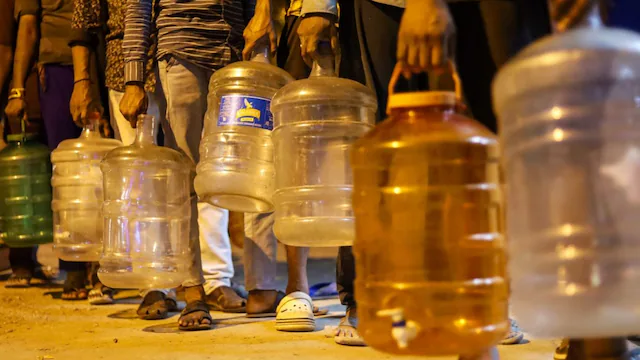Bengaluru Bans Potable Water for Non-Essential Uses
In an urgent attempt to avert a water crisis in Bengaluru, the Bengaluru Water Supply and Sewerage Board (BWSSB) has issued a ban on the use of potable water for non-drinking purposes. This drastic measure, aimed at preserving the city’s dwindling water resources, prohibits activities such as vehicle washing, gardening, filling swimming pools, and construction work from using drinking water. As the city faces the prospect of a severe water shortage due to declining groundwater levels, residents are warned of a ₹5,000 fine for violating the ban, with an additional penalty of ₹500 per day for repeated offenses.
The imposition of such restrictions comes at a critical juncture, as Bengaluru is expected to face a water crisis yet again this year. Groundwater levels in the city have already reached alarming lows, exacerbated by poor monsoon rainfall and over-extraction. The BWSSB’s directive, which was issued to housing societies and residential welfare associations, aims to conserve potable water and redirect its use towards essential purposes only. Under Sections 33 and 34 of the Bangalore Water Supply and Sewerage Act, 1964, residents are now urged to report violations through the BWSSB helpline at 1916. The focus on reducing non-essential water use is seen as an essential measure to conserve resources during the approaching summer months.
The situation in Bengaluru, as the city’s water supply becomes increasingly strained, is a stark reminder of the severe impact of urbanisation on the environment. A recent study by the Indian Institute of Science (IISc) identified over 80 wards and 110 villages that are heavily reliant on groundwater, making them highly vulnerable to shortages. The current scenario highlights the urgent need for sustainable water management strategies, including the promotion of alternative water sources like the Cauvery water supply. Karnataka’s Deputy Chief Minister, DK Shivakumar, has urged residents to rely on Cauvery water instead of tankers, further underlining the importance of utilising available resources more responsibly.
From a sustainability perspective, the situation calls for long-term measures that go beyond temporary bans. As Bengaluru’s population continues to grow, the city must invest in water conservation methods such as rainwater harvesting, recycling, and the construction of sustainable urban infrastructure that reduces dependency on groundwater. Moreover, urban planners need to focus on creating green spaces and reducing impermeable surfaces that contribute to water wastage and exacerbate the effects of the Urban Heat Island (UHI) phenomenon. While temporary water use restrictions can mitigate immediate risks, the city’s water future hinges on comprehensive strategies that promote sustainability and equity for all its residents.
In conclusion, Bengaluru’s ongoing water shortage crisis is a pressing civic issue that demands urgent and collective action. The city’s water crisis not only highlights the fragile balance between urban growth and environmental conservation but also underscores the critical need for robust urban policies. As temperatures rise and demand for water increases, Bengaluru’s response to this challenge will set a precedent for other rapidly urbanising cities in India. Addressing these issues with a focus on sustainability, public awareness, and innovative water management solutions will determine the city’s ability to overcome its water scarcity challenges in the years to come.


